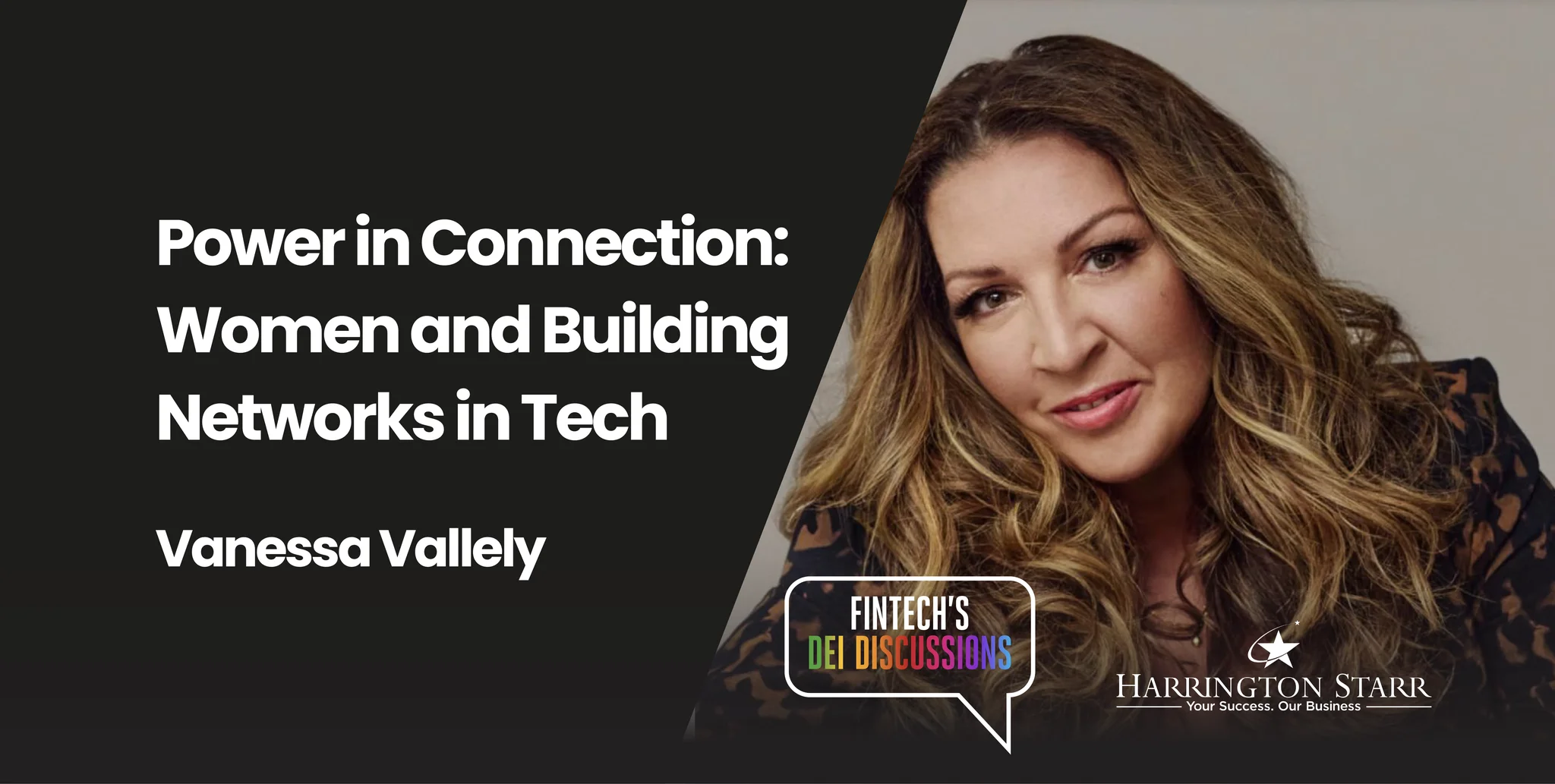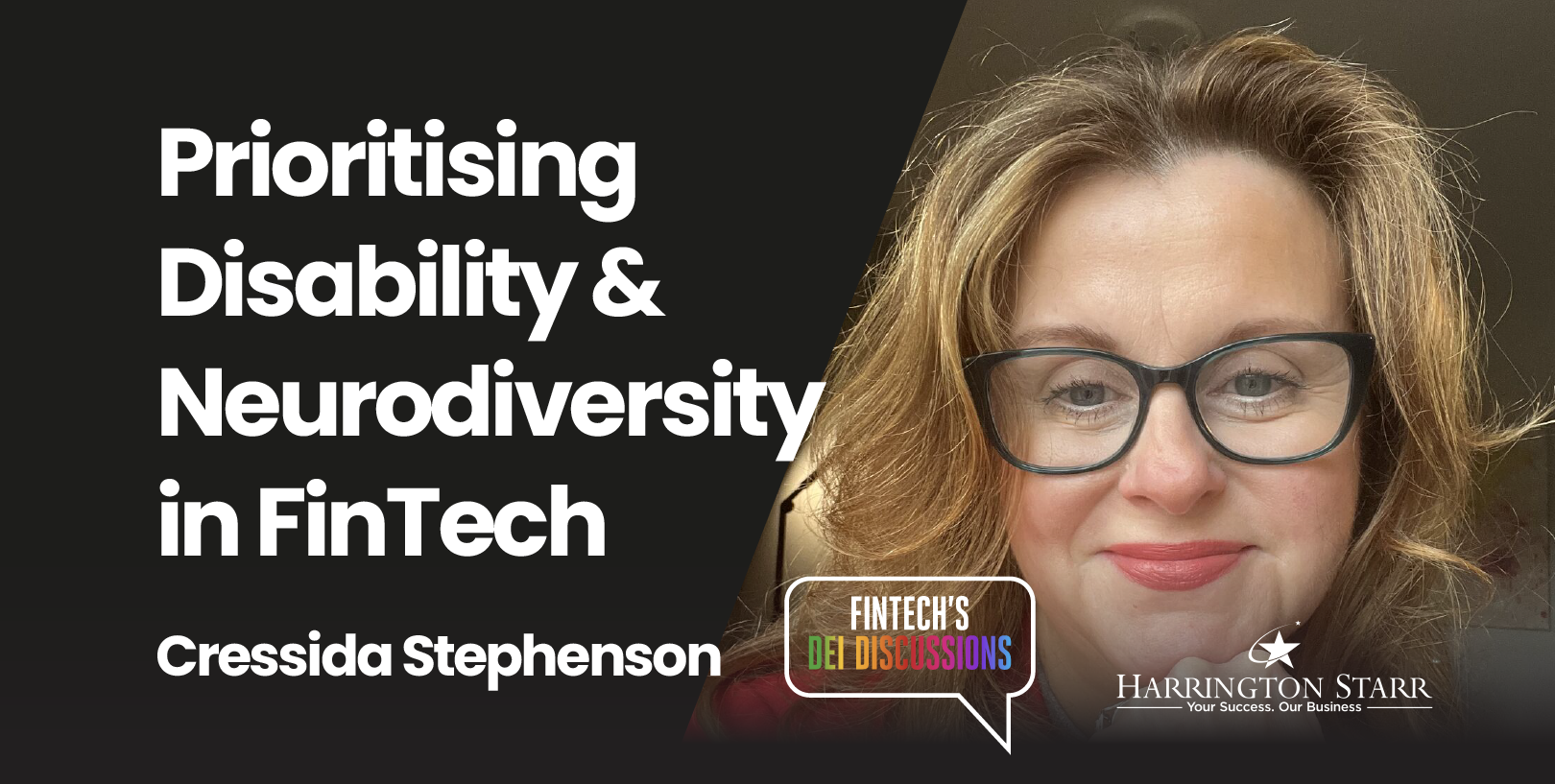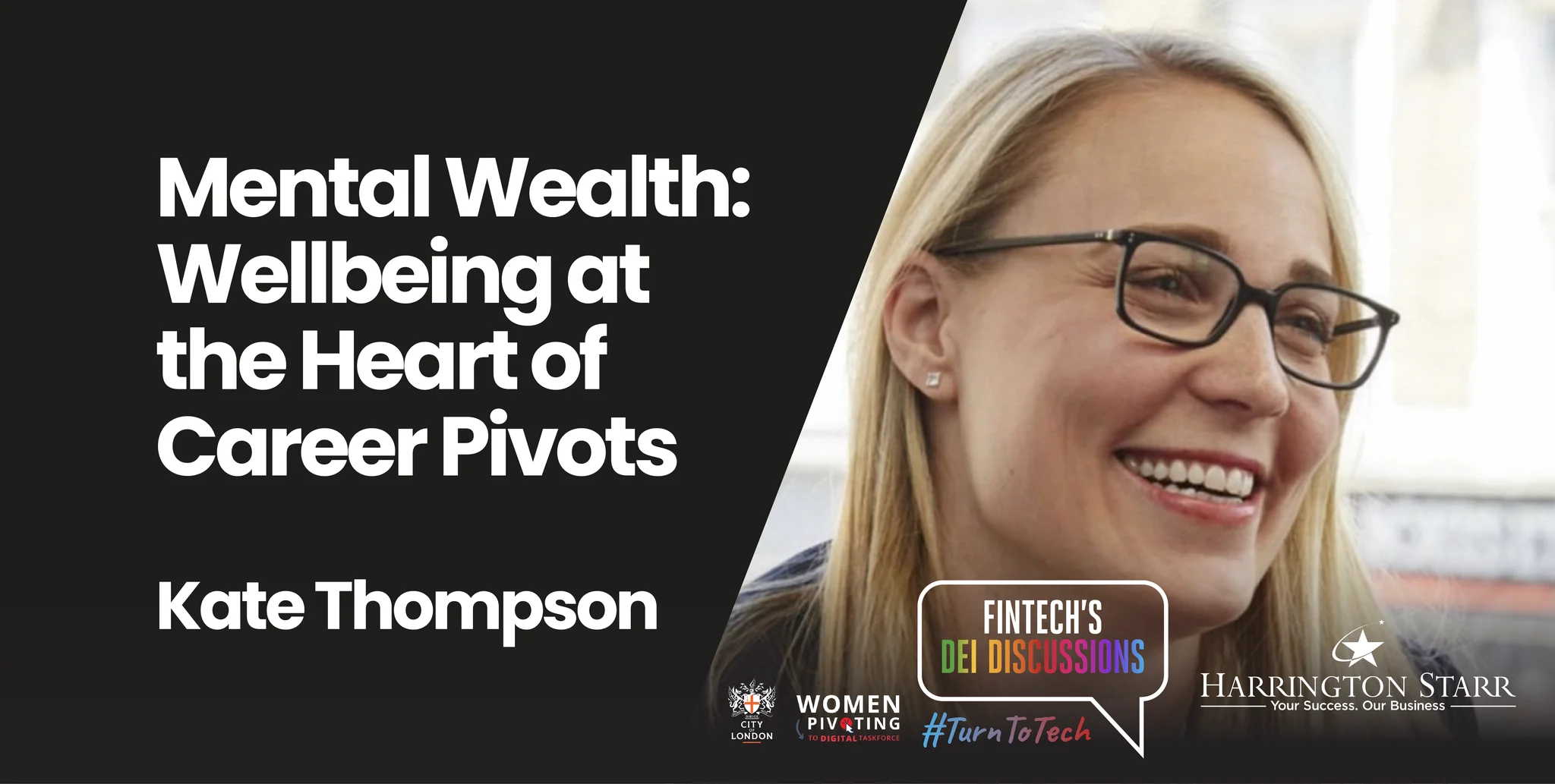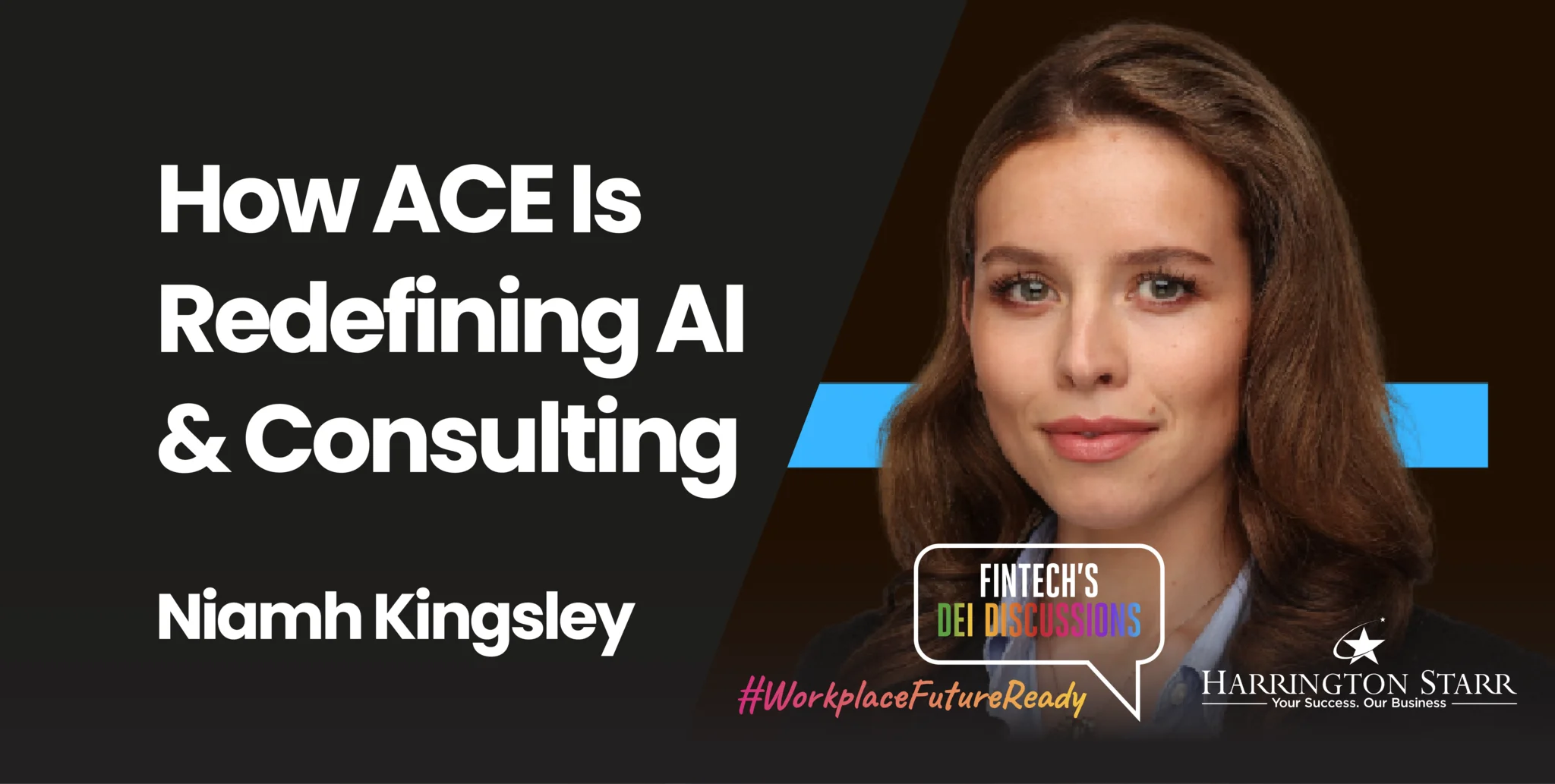
In the latest episode of FinTech's DEI Discussions, host Nadia engages in a profound conversation with Cressida Stephenson, Disabled CEO and Founder of EdenChase Associates. This episode delves into the critical topic of disability inclusion in the FinTech sector and explores how organisations can implement effective strategies to create a more inclusive workplace environment. Cressida shares her inspiring journey and highlights the importance of actionable steps that businesses can take to ensure that all voices are heard and represented.
A Personal Journey Toward Inclusion in FinTech
Cressida’s mission is deeply personal and rooted in her own experiences. After nearly a decade of focusing on gender equity through her company, her life took a dramatic turn when she received a diagnosis that transformed her life. This pivotal moment prompted Cressida to pivot her focus toward disability and neurodiversity, ultimately leading her to establish EdenChase Associates. Her organisation is dedicated to helping companies close the opportunity gap for disabled and neurodivergent talent, providing consulting services that guide organisations in becoming inclusive employers. Cressida’s passion for her work shines through as she discusses her journey and the experiences that fuel her commitment to making lasting changes in the workforce.
Cressida’s transformation into an advocate for disability inclusion was not simply a career shift but a deeply emotional journey that reshaped her understanding of both personal and professional identity. The challenges she faced after her diagnosis brought forth a new perspective on the barriers disabled individuals encounter daily, particularly in the workplace. She recounts the moment she realised the importance of sharing her story—not just for her own healing but to encourage others to recognise the urgent need for systemic change in the way companies approach disability inclusion.
The Importance of Starting Somewhere
One of the key themes of this episode is the notion that everyone can start somewhere when it comes to fostering inclusion. Cressida emphasises that regardless of an organisation's current state, there is always a starting point for making improvements. Many companies express a desire to do the right thing regarding inclusion but often feel overwhelmed by the prospect of initiating change. Cressida encourages organisations to create safe spaces for employers to learn about inclusion, which can bridge the gap between awareness and action. By starting the conversation around disability inclusion, companies can begin to implement necessary changes and foster a culture of understanding.
Cressida highlights the importance of actionable steps rather than becoming paralysed by the enormity of the task at hand. She points out that many organisations tend to focus on the obstacles that prevent them from making progress, such as a lack of resources or uncertainty about where to begin. However, she asserts that the most effective approach is to start with small, manageable initiatives that can gradually lead to more significant changes. Whether it’s conducting an audit of current hiring practices, providing training on disability awareness, or establishing partnerships with organisations that specialise in disability inclusion, these initial steps can set the foundation for a more inclusive workplace.
Disability Inclusion as a FinTech Business Imperative
As the discussion progresses, Cressida highlights the economic implications of disability inclusion in relation to sustainable business models. She points out that the European Accessibility Act, set to come into force in June 2025, is driving organisations to recognise the importance of creating accessible products and services. In doing so, companies can tap into what Cressida refers to as the "purple pound," representing the significant purchasing power of disabled consumers. The current market for disabled consumers in the UK is valued at £274 billion, while globally, it reaches a staggering $13.1 trillion. By making their services accessible, organisations are not just meeting compliance requirements but also enhancing their market reach and customer satisfaction.
Cressida emphasises that organisations need to view disability inclusion not merely as a compliance issue but as a strategic business imperative. The benefits of inclusion extend far beyond moral and ethical considerations; they directly impact an organisation's bottom line. Companies that prioritise inclusivity can attract a broader customer base, enhance brand loyalty, and improve employee engagement, all of which contribute to sustainable growth. Cressida’s insights challenge organisations to rethink their approaches to diversity and inclusion, highlighting the importance of integrating these principles into their core business strategies.
The Societal Impact of Inclusive Practices
Cressida’s insights extend beyond financial metrics; she discusses the broader societal impact of inclusive practices. Organisations that prioritise disability inclusion will attract diverse talent and cultivate a more engaged and loyal workforce. Employees are more likely to feel valued and supported when they see their organisations actively promoting inclusivity, leading to increased productivity and lower turnover rates. This aspect is particularly relevant for industries like FinTech recruitment, where retaining top talent is critical for success.
Neurodiversity and Future Workforce Trends
The conversation also delves into the vital role of neurodiversity in the workplace. Cressida highlights that a significant percentage of the upcoming workforce will identify as neurodivergent, with 53% of Gen Z currently self-identifying in this way and estimates suggesting that over 70% of Gen Alpha will follow suit. This demographic shift underscores the urgent need for organisations to implement inclusive hiring practices tailored to the needs of disabled and neurodivergent candidates. Cressida stresses that companies must design their hiring processes with these candidates in mind, rather than retrofitting existing frameworks, which can lead to missed opportunities and hinder sustainable growth.
The Role of Leadership in Promoting Inclusion
Moreover, Cressida encourages listeners to reflect on the inclusivity of their organisational culture. She poses the question, “Who’s not in the room?” challenging leaders to consider the representation within their teams and decision-making processes. This inquiry serves as a catalyst for action, prompting organisations to examine their current practices and identify gaps in representation. Cressida advocates for leaders to take a proactive approach by seeking input from disabled and neurodivergent individuals when developing policies and practices. This not only enriches the decision-making process but also fosters a sense of belonging and ownership among employees.
Practical Steps to Embed Inclusion in Organisational Culture
As the episode progresses, the conversation shifts towards the practical steps organisations can take to embed inclusion into their culture. Cressida suggests that organisations prioritise disability and neurodiversity inclusion at the top of their diversity, equity, and inclusion (DEI)agendas. This includes investing in training, creating mentorship programs, and ensuring that diverse voices are represented at all levels of the organisation. Cressida emphasises that leadership plays a crucial role in this process and advocates for a cultural shift that prioritises inclusion as a core value rather than an afterthought.
Reframing Inclusion as a Necessity
Nadia and Cressida also touch on the misconceptions surrounding disability inclusion. Cressida argues that many organisations view inclusion as a luxury or a compliance issue, rather than a fundamental necessity for business success. By reframing the conversation around inclusion as essential to sustainable growth, organisations can shift their mindsets and recognise the value that diverse perspectives bring to the table. This perspective is particularly relevant for sectors such as Cyber Security and IT risk, where diverse teams can drive innovation and enhance problem-solving capabilities.
Personal Narratives and Advocacy
Throughout the episode, Cressida's personal narrative weaves seamlessly with her professional insights, offering listeners a unique perspective on the challenges and triumphs of advocating for disability inclusion. Her passion for her mission is palpable, and she encourages organisations to embrace their role in creating a more equitable future. By fostering a culture of inclusivity, organisations can not only fulfil their ethical responsibilities but also position themselves as leaders in the evolving landscape of work.
The Call to Action for FinTech Leaders
As the episode comes to a close, Cressida reiterates her call to action for leaders and organisations. She emphasises the importance of looking around and questioning who is missing from the conversation. By actively seeking to include disabled and neurodivergent individuals in discussions and decision-making processes, organisations can create an environment where everyone feels valued and empowered. Cressida's insights serve as a powerful reminder that disability inclusion is not just a responsibility; it is an opportunity for organisations to thrive in an increasingly diverse world.
The Path Forward for FinTech Recruitment
In summary, this episode of FinTech's DEI Discussions is a compelling exploration of the importance of disability inclusion within the FinTech sector. Cressida Stephenson’s insights shed light on the economic, social, and cultural benefits of creating inclusive workplaces. Her passion for change and commitment to bridging the opportunity gap for disabled and neurodivergent talent is inspiring and offers a roadmap for organisations seeking to enhance their DEI strategies.
As a FinTech recruitment business, Harrington Starr is dedicated to promoting these values and helping organisations navigate the complexities of inclusive practices. By prioritising disability and neurodiversity, companies can unlock the full potential of their workforce, drive innovation, and contribute to a more equitable future in the industry.
Cressida’s story and insights not only resonate with the current landscape of work but also challenge us to rethink our approaches to inclusion and diversity. By fostering an inclusive environment, organisations can thrive, innovate, and set themselves apart in a competitive market.





